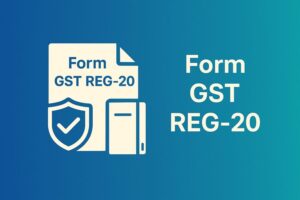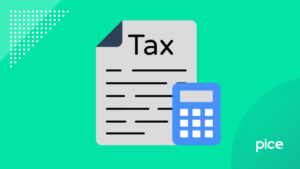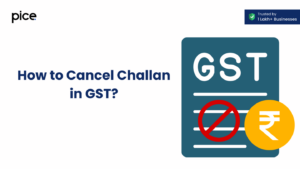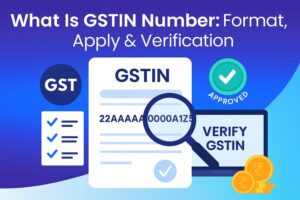Advance Payment Received Under GST
- 27 Jan 25
- 9 mins

Advance Payment Received Under GST
Key Takeaways
- GST is applicable on advances for services but exempt for goods under certain conditions.
- GST liability arises when the advance is received, not upon supply.
- Goods suppliers under GST notification no. 66/2017 are exempt from GST on advances.
- Reconciliation of advance payments with invoices ensures accurate GST compliance.
- Advance adjustments depend on scenarios like cancellations, refunds, or forfeitures.
It is common practice for businesses to receive advance payments from their customers for goods and services that will be provided later. Tax implications of the advance payment received under GST will vary in different circumstances.
This blog will discuss aspects of GST on advance payments, such as the taxable events and their GST applicability, some exceptions and rules for it, and other crucial roles it plays for businesses.
What Are Advance Payments for GST?
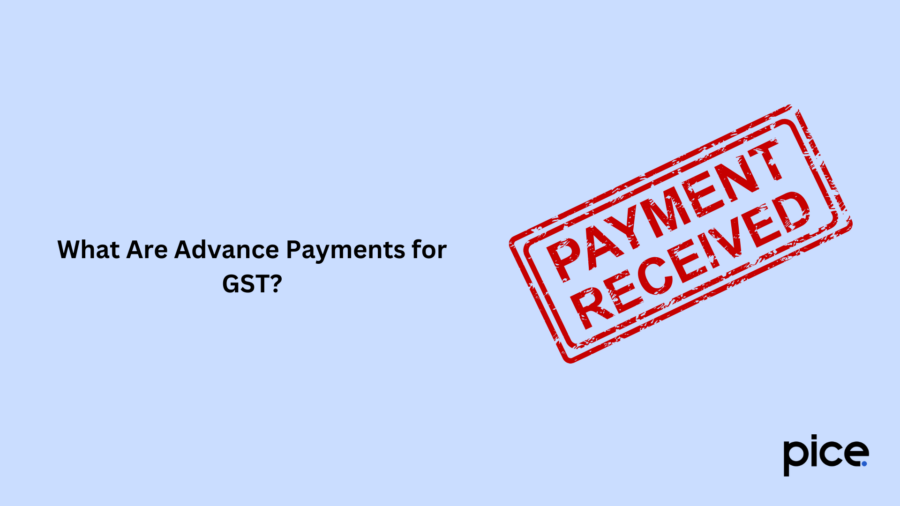
Advance payments are payments from customers to suppliers before the actual supply of goods or services. Customers make these payments to secure future supply. The nature of supply and time of supply determine how these advance payments are treated under GST.
Customers must pay goods and services tax when they pay a supplier an advance for goods and services as a consideration for supply. Tax authorities consider this advance payment before the goods and services are delivered as taxable.
Taxable Event and GST Applicability
These are the taxable events and their GST applicability:
- GST is not applicable when advance payment is received by a supplier for the supply of goods. Here, GST will be applicable when advance payment is received for the supply of services.
- If the supplier has chosen a composition scheme, GST will not be applicable.
- If the supplier does not choose a composition scheme for goods, GST will not be applicable. It will be applicable if the suppliers do not choose a composition scheme for services.
- GST will be applicable when advance payment is received for the supply of services and the supply is cancelled. Here, minor adjustments may be required depending on particular scenarios.
- When the GST advance is refunded, an adjustment or refund of GST may be applicable.
- The GST may be retained according to specific terms when the advance is forfeit.
In the case of advance payments, the government treats the payment as if the supply has already occurred, even when no actual supply has taken place. Here are key GST implications on advance payments made for future supplies:
- Determine the Time of Supply
Sections 12 to 14 of the CGST Act 2017 set the time when taxpayers must discharge Goods and Services Tax on a specific supply. The time of supply is determined by when the supplier receives payment for the supply. Other criteria include the issuance of a tax invoice and the receipt of goods. The time of supply is generally the earliest of an invoice's issuance or receipt of payment.
- Advance Payments
When an advance is received for a supply, the time of supply is considered to be when the advance payment is made, even if the actual supply hasn't happened yet. This implies that GST must be paid when the advance is received, not when the supply is done.
Some steps need to be followed to do this correctly, such as including proper documentation and making sure the taxes paid in advance match up with the final supply.
- Deemed Supply
A supply is considered to have occurred to the extent it is mentioned in the invoice or, if applicable, the payment made according to Section 12 of the CGST Act 2017.
- Cancellation of Supply
If a supply is cancelled after an advance payment, the treatment of the advance depends on the agreement. It may be forfeited, refunded, or adjusted against future supplies.
- Exemptions for Goods Suppliers
The Indian government released GST notification no. 66/2017 on 15 November 2017 as the government realised the compliance burden on small businesses regarding GST on advances.
According to this notice, goods suppliers not opting for the composition scheme are exempt from paying GST on advances received. However, service providers must pay GST upon receiving advances. Each of these options may have different rules for how tax should be handled.
Exceptions and Specific Rules for Advance Payments
There are some exceptions and specific rules for advance payments, such as:
- Zero GST Rate
If the goods or services are taxed at 0%, taxpayers are not required to pay GST on the advance. If a 0% GST rate applies to an advance payment transaction, then matching and balancing the invoices against the receipts may not be applicable.
- Interstate and Intrastate Transactions
Taxpayers will have to calculate different components of GST depending on the type of transactions. When the transaction is interstate, they must calculate the Integrated GST (IGST). Taxpayers must calculate the Central GST(CGST) and State GST(SGST) for intrastate transactions.
Advance Payment Reconciliation and GST Adjustments
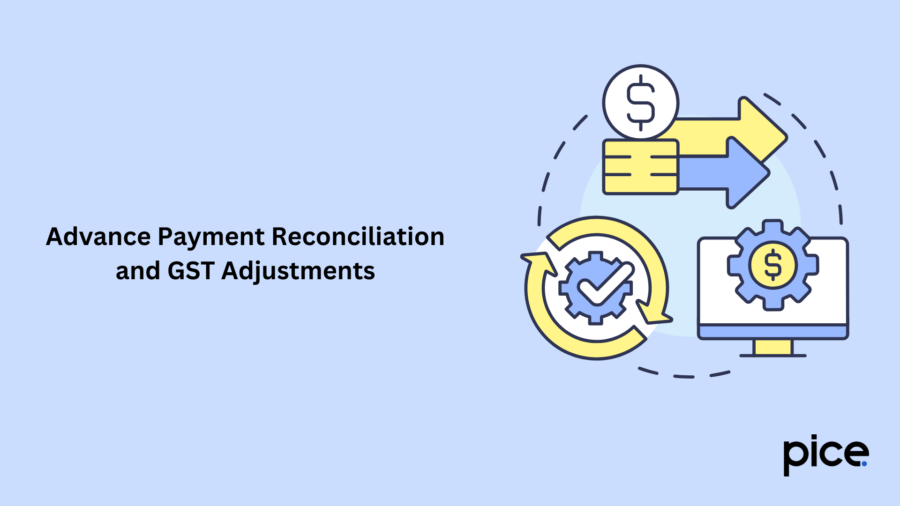
Here are the steps you need to follow in order to ensure advance payment reconciliation and make GST adjustments for goods and services effectively:
- Make Unapplied Receipts
You can use a specific program to make unapplied receipts for advance payments because the supply has not been made. Here the receipts are created without matching invoices.
- Determine GST on Advance Payments
Some programs assist in calculating GST on advance payments for goods and services. These programs consider the Harmonized System of Nomenclature (HSN) and Service Accounting Code (SAC) tax rates.
- Match and Balance Receipts
You can use programs to offset advance payments against invoices to effectively do advance payment reconciliation.
Matching Advance Payment Receipts with Sales Invoices
If a customer pays in advance for goods, the supplier must offset the advance amount against the invoice amount to ensure accurate GST liability calculation. This matching process is crucial for the following reasons:
- Reduced GST Liability
Matching advance payment receipts reduces the GST liability effectively. Advance payment includes GST, and when the final sales invoice is issued, it must account for the GST paid in advance.
- Effective Tax Accounting
This matching process helps in reconciling advance payments with final supply, which results in the clear representation of financial transactions in the accounts books.
- Compliance Requirements of GST Laws
Reconciliation of advance payments with sales invoices is required to ensure correct tax payment and reporting as per GST regulations. There are certain accounting tools and software made to assist in the matching process, and these tools automate the reconciliation process and make it simpler and more efficient.
Matching Advance Payment Receipts with AR Invoices
The matching of advance payments with accounts receivable (AR) invoices has a similar reason behind it, but it is focused on service transactions. Some important reasons to do this are:
- Balancing Advance Payments
The entire advance payment received for the supply of services must be balanced against the books of accounts receivable invoice amounts. When the service is done and an invoice is produced, the advance payment, including GST, should match.
- Correctly Reporting Finances
The process of matching advanced payments to AR bills is necessary for keeping reliable and accurate financial records. This helps show actual income and liability in the financial statements.
- Reducing GST liability
The matching process assists in reducing GST liability for services. This GST component of the advance payment is correctly adjusted by matching the advances to the accounts receivable bills. This prevents tax overpayment.
- Compliance and Reconciliation Requirements
This matching process is an important part of abiding by the GST laws for services. Proper reconciliation of advances with AR invoices is required for tax compliance and correct reporting.
Conclusion
It is important to understand the implications of advance payment received under GST to ensure the GST law is being complied with. Tax authorities take these payments made as a consideration for future supply as taxable.
This blog has discussed the intricacies of advance payments, some exceptions and rules, some taxable events and their GST applicability, and other important details.
💡If you want to streamline your payment and make GST payments, consider using the PICE App. Explore the PICE App today and take your business to new heights.
 By
By 





